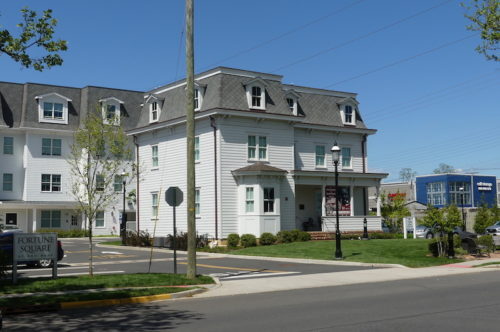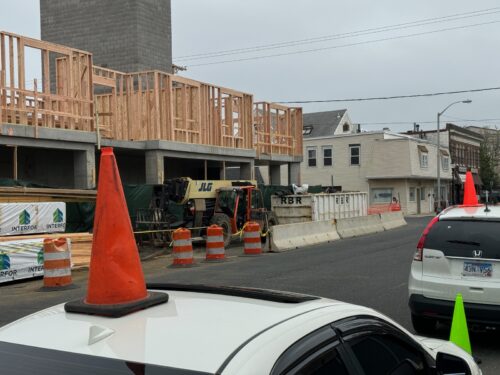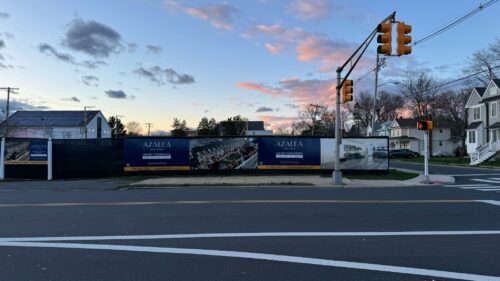
By DUSTIN RACIOPPI
A year of negotiations between local officials and a restaurant and marina owner, who hit the borough with a lawsuit for not meeting its affordable housing requirements, has resulted in the creation of a new affordable housing zone in Sea Bright, clearing the way for an anticipated plan for condos at the north end of town.
The settlement, memorialized by an ordinance creating a new housing district near the foot of the new Route 36 bridge, sent neighbors of the property into an offensive against the council, accusing the governing body of poor planning and buckling under the pressure of the suit.
But the council contend the deal is the best available option for the borough, considering the possible alternative while meeting a murky state mandate to provide affordable housing.
“This was the best negotiation settlement we could (have),” Attorney Pat McNamara said. “I know you’re not happy about it. I don’t think anybody in this room really is.”
As a result, Victor Scudiery, who owns Gaiter’s restaurant and a marina at 150 Ocean Avenue, is expected to submit a plan to the borough to build two, 12-unit residential buildings on the property, effectively fulfilling the borough’s affordable housing obligation.
Scudiery, who is also chairman of the Monmouth County Democratic party, filed what is called a builder’s remedy lawsuit against the borough last year. Such a suit allows a developer to enter litigation with a municipality that does not meet its state-mandated affordable housing requirements, and in most cases favor the plaintiff, McNamara said.
“Most judges believe that if you’re the town [you’re] walking in on the wrong end of one of these suits,” he said. “It’s not that you’re presumed guilty until you’re proven innocent, but it’s pretty close.”
In getting hit with the lawsuit, Sea Bright exemplifies the confusion among built-out municipalities that have struggled to understand or receive a clear set of rules from the state Council On Affordable Housing, McNamara said.
“It’s been alleged that we’ve been derelict in our duty,” Councilman Read Murphy said. “We thought we had zero [state Council on Affordable Housing] obligation because we’re a built-out town.”
But residents, many of them from the Land’s End Condominium complex next door to Gaiter’s, said the borough had chances in the past to receive COAH certification and should have fought the lawsuit rather than enter negotiations.
“I feel personally that we’re in this position because the council didn’t do its job,” said Land’s End resident Pete Graham. “We’ll work with you, buy we’re also disappointed in how it was handled.”
Another Land’s End resident, Al Weinstein, called the lawsuit “fox in the henhouse litigation,” that could open the door to future development plans.
“Once you get them in you can’t get them out,” he said. “A lot of people are going to get hurt.”
Kevin Kennedy, an attorney representing the Land’s End owners association, said the revision of the ordinance is a circumstance in which zoning is dictated by the needs of a developer and not the benefit of the general public.
“This situation is unfortunate,” he said. “Any development is going to have a direct and major impact on our area.”
Perhaps, but had the borough contested the lawsuit, in which a Special Master, or court-appointed intermediary, were to get involved, there was the possibility that Scudiery’s original plan for about 50 units on four levels above one level of parking might have been allowed, town officials said.
Through negotiations, the borough was able to bring the concept which has not been filed with the borough down in density, to 45-feet in height, as well as put parking at street level, McNamara said.
“It would have been much, much more intense than what is going to be built there,” said Tom Hirsch, who represents Scudiery. “This owner intends to build a first-class development. It will be a benefit to the town.”
Any plans Scudiery does have will still have to go through planning and zoning approval processes, in a public forum, for input on or variations to the plan, Murphy reminded residents.
“This (ordinance) has nothing to do with what will be developed on the property. That still has to go to the planning board,” he said. “This isn’t a ramrod or anything like that. It still has to go through the full process.”





















